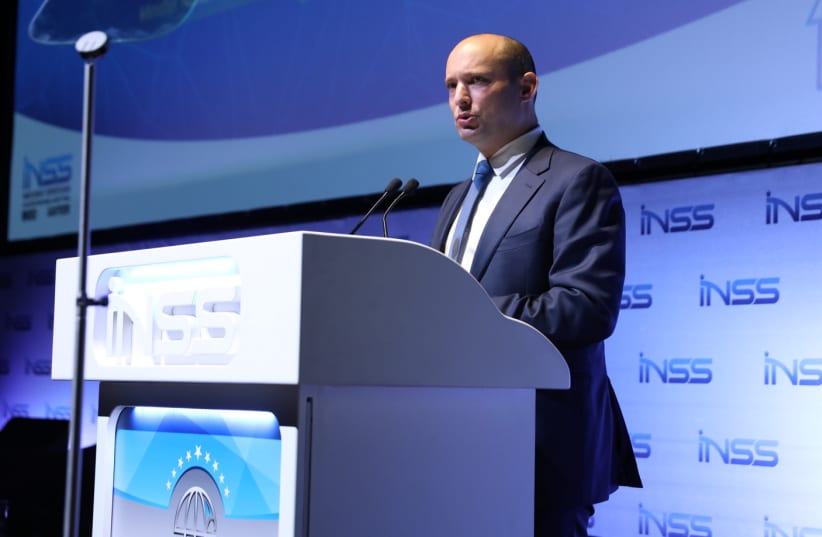In terms of what makes Israel such a strong source of startups, the minister cited both a culture of strong youth movements – often led by teenage counselors – and mandatory military service as incubating endless innovation.“At the young age of 22, I find myself planning and leading an operation of 100 soldiers behind me in enemy territory. I’m in charge of their lives. You come out at the age of 22 and you feel like you can do anything. It’s like the Hebrew expression, ‘It’s small on me (katan alay).’”Bennett added that the army mandates you overcome obstacles, regardless of what may lie in front of you.“If you can get in through the door, fine. But if you can’t get through the door, get through the window. If you can’t get through the window, punch a hole in the ceiling.... It’s the same thing as entrepreneurs – infiltrate into that building.... It’s your problem, ain’t my problem, no limits, so do it.”As education minister, Bennett has taken an eagle-eyed approach to boosting Israel’s PSA math scores – relying on Tel Aviv University Prof. Dan Ben-David’s startling findings about how Israeli students’ test scores lag behind the OECD.One finding caught Bennett’s attention: High school students who struggled to matriculate with five units in math – the most difficult level – earned much more in future salaries than those who passed math with flying colors in three or four units.Since then, Bennett has prioritized math.In contrast to the minister’s hawkish politics, Bennett talked often about integrating Israeli Arabs – who comprise around 1.8 million people or 25% of the population – into hi-tech and the general economy.“Short story, the Arab population is on a very strong trajectory, and in five years they’ll reach results similar to the Jewish population – in math, science, Hebrew,” Bennett said, adding that today more than 35% of Arab women work, up from almost 20% some six years ago. “Israel wants them to be part and parcel of the country.”More challenging for Bennett than integrating more Arabs into hi-tech is the ultra-Orthodox. Despite sitting in a government coalition with haredi parties, Bennett called for teaching core subjects in their schools and for haredim to join the workforce.“These ultra-Orthodox are afraid that we want to impose our values on them. We don’t. All I want is for them to work and to pay taxes. I’m willing for them not to serve in the military.”Bennett added, on an optimistic note: “I’m trying to bring them into math, English, the core curriculum, so they’ll be able to get good jobs.... It will get solved for one reason: the younger generation is fed up with being poor.”We’ve landed in Jerusalem! Fortunate to hear from Israel’s Ministry of Education, @naftalibennett sharing his vision of the future of work and education. #KFIsraelSummit pic.twitter.com/uGYY4BHqtJ
— Kauffman Fellows (@KauffmanFellows) April 25, 2018
Bennett wows visiting investors with tales of war and start-ups
“Israel is on a very good track. If Israel were a share, I’d buy it,” he told the visiting venture capitalists.
